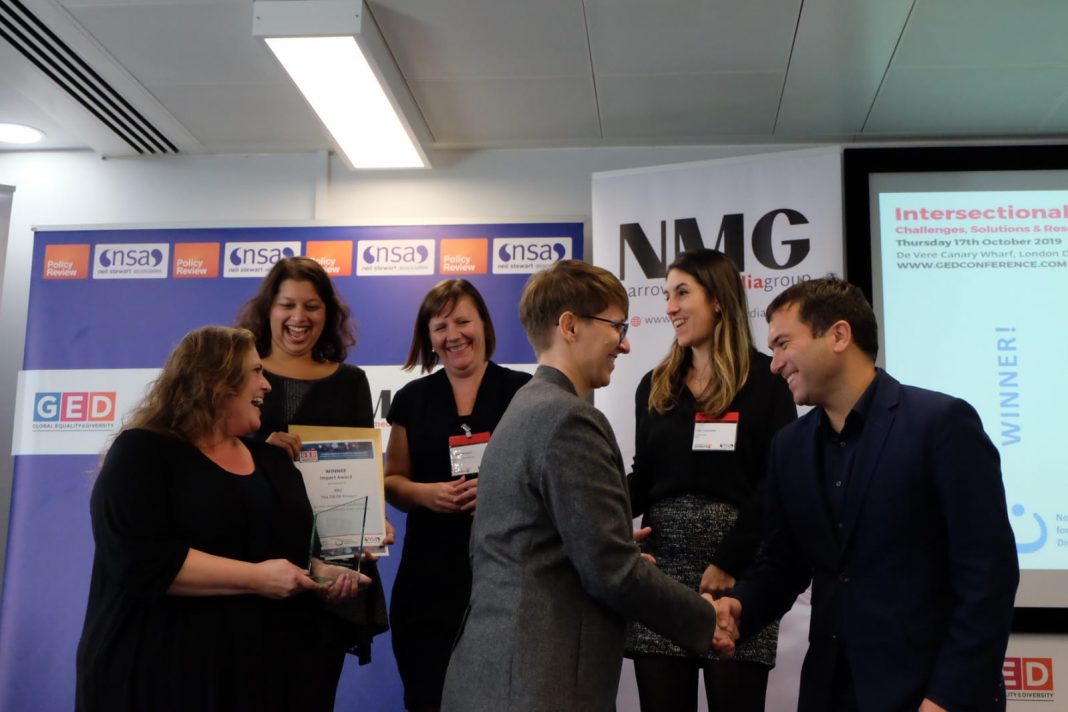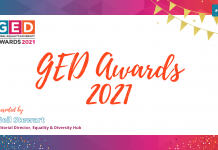Luminaries from the world of equality and diversity in business were honoured at the 6th Annual Global Equality & Diversity (GED) Awards which took place yesterday at De Vere in London’s Canary Wharf.
The big winners on the day included SAP, Essex Police, MSD, and the BBC.
The Global Equality and Diversity Awards were conceived by Lord Noon to recognise the contribution of businesses and public organisations to equality and diversity.
Now in their 6th year, the GED Awards are both a celebration of achievement and also inspiration for the next generation of bold change, using transparency in measuring impact and revising business action plans.
The quality of this year’s entries was very high and it is clear that that there is a lot of innovative work taking place around the country, globally in businesses, local government, academia and public services. We are raising the bar and ensuring equality and diversity not only in the workplace but in all the practices and relationships of organisations.
We’d like to thank Holman Fenwick Willan LLP for their support of GED and, in particular, their kind sponsorship of the Noon Award.
Watch the Global Equality & Diversity Awards 2019:
Winners & Highly Commended Nominees
THE NOON AWARD
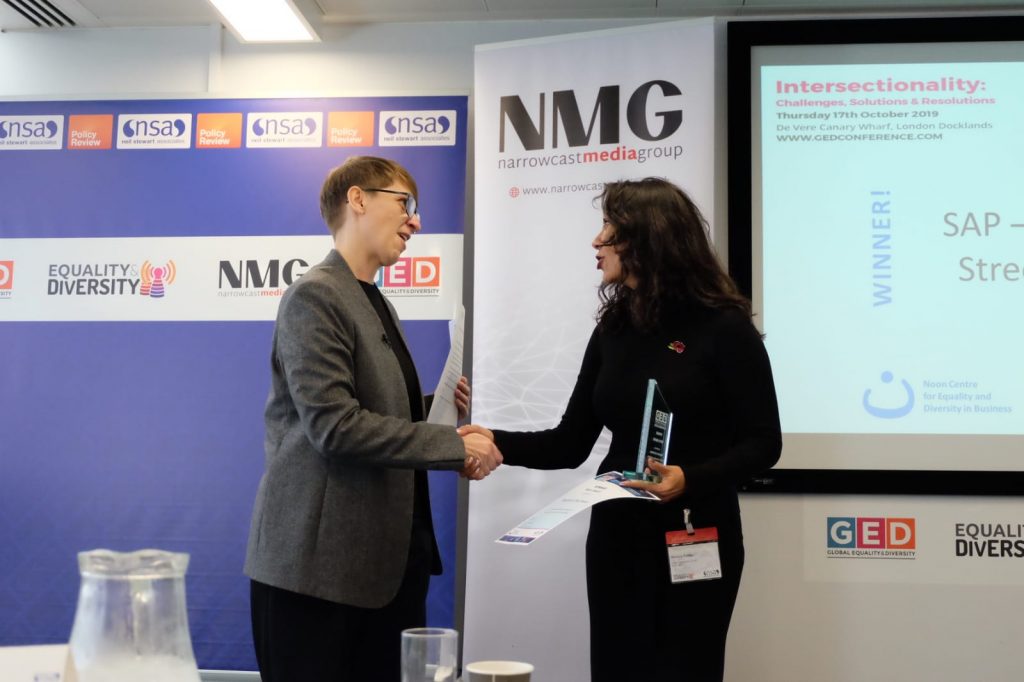
WINNER: SAP – Diversity in the Streets
HIGHLY COMMENDED: Dr Gregory Burke, Founder, AccessAble
SAP won this year’s Noon Award for their Diversity in the Streets project, a multimedia digital hub (DiversityInTheStreets.com) containing stories from SAP employees related to diversity. Each story is illustrated by a graffiti art made exclusively for the project.
In this digital hub, it is possible to check SAP Latin America & the Caribbean Diversity & Inclusion best-practices, which they believe might inspire other companies and organizations to help the world run better and improve people’s lives.
The Judges were particularly impressed with the company’s work creating a supportive environment where employees can be authentic, without having to interpret a character at work.
Dr Gregory Burke, Founder of AccessAble was Highly Commended for the development of the AccessAble brand. By the end of 2018, AccessAble was being used by circa 2 million people, giving them the confidence to visit new places for the first time, and live their life to the full. AccessAble, originally called DisabledGo, was set up in 2000 by Dr. Gregory Burke as a result of his own experiences as a wheelchair user and disabled walker.
IMPACT AWARD
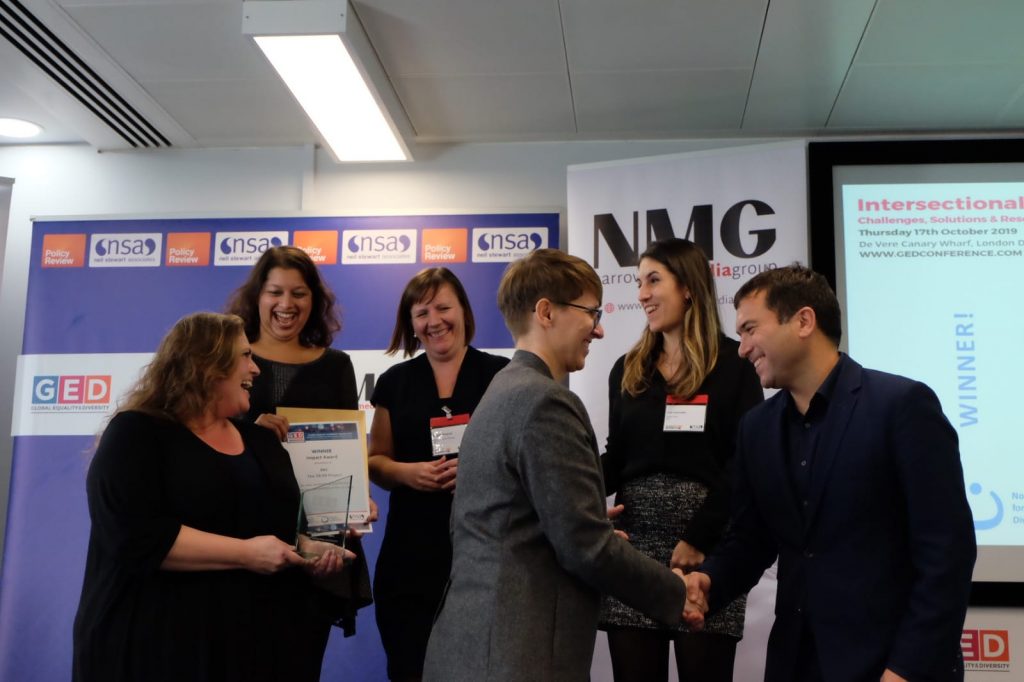
WINNER: BBC – 50:50 Project
HIGHLY COMMENDED: Shaun Dellenty – Celebrating Difference A Whole School Approach to LGBT+ Inclusion
The Impact Award was won by the BBC, an organisation that has often been in the headlines for its challenges on equality but in the case of the 50:50 Project passed both the test for impact and for being global in its reach.
This project is the BBC’s biggest ever collective action to increase women’s representation in content. 50:50 is distinct from other diversity projects because it’s voluntary and self-monitoring.
In May the BBC published its 50:50 data for April 2019. 74% of teams implementing the methodology for 12 months or more reached 50% women contributors. That’s compared to 27% of teams managing 50:50 when they started. The 50:50 Project is delivering tangible results and transforming diversity in the global media landscape.
Highly Commended in this category was Shaun Dellenty who devised Inclusion For All, a ground-breaking training programme raising awareness of LGBT+ identities. Shaun’s approach to organisational change has caught the attention of National College, Stonewall, OFSTED and Department For Education, reaching national and international learning communities.
RESEARCH AWARD
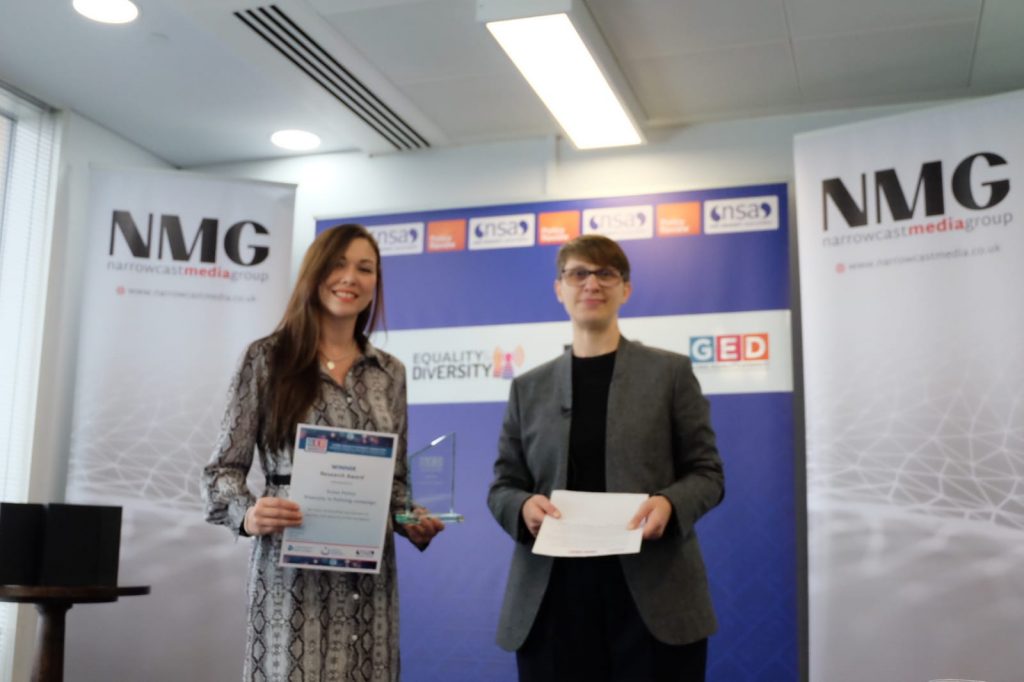
WINNER: Essex Police
HIGHLY COMMENDED: Conflux
The Research Award was won by Essex Police for their Diversity in Policing campaign. For many years Essex Police has struggled to attract officers and staff from BAME backgrounds. Considerable thought, planning, research, and creativity went into executing an in-house diversity and inclusion campaign. This has seen BAME applicants increase from under 3% to approaching 9%, which is more than the proportion of BAME people in the economically active population of Essex (6.56%). Figures continue to rise positively encouraging a more inclusive organisation.
Conflux were highly commended for their groundbreaking research on Cultural factors contributing to the Gender Pay Gap and inequality in the NHS. The purpose of this research was to provide NHS Trusts with actionable insights into the factors contributing to an inclusive culture and the Gender Pay Gap.
This helped NHS Trusts to understand how barriers can be addressed and help build a culture of inclusion and narrow the Gender Pay Gap. Special attention was paid to intersectionality.
INCLUSIVE WORKPLACE AWARD
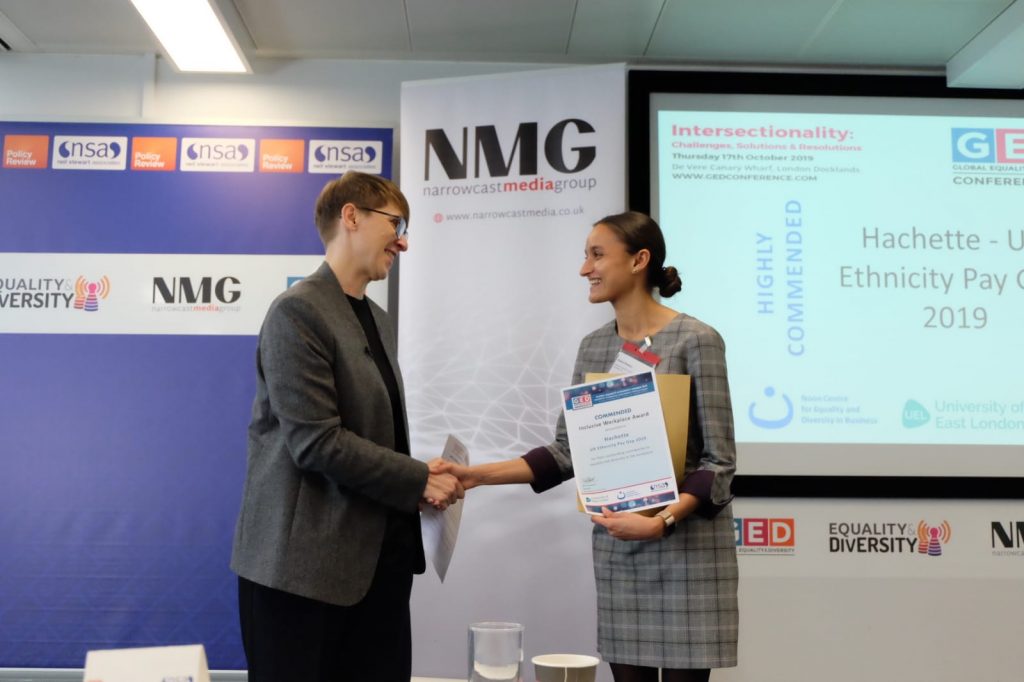
WINNER: MSD
HIGHLY COMMENDED: Hachette UK
MSD won the inclusive workplace award for their commitment to fostering a culture that values the diversity, equity and full inclusion of their workforce, and reflects that in how they operate and treat each other every day.
They are building a strong track record of achievements that demonstrate this commitment. Examples include signing the CEO Action for Diversity & Inclusion pledge, supporting Employee Business Resource Groups, enhancing the training of managers, and making progress against aspirational talent goals for women and underrepresented ethnic groups.
Hachette UK were Highly Commended for voluntarily publishing their first ethnicity pay gap earlier this year. The report shows the difference between the average earnings of all Black, Asian and other Minority Ethnic employees and the average earning of all white employees, expressed as a percentage of white employees’ earnings. This has led to a BAME representation target of 15% of the total group workforce within five years. The report has also opened up the conversation around race in the workplace and allowed better qualitative data into the experiences of staff.


